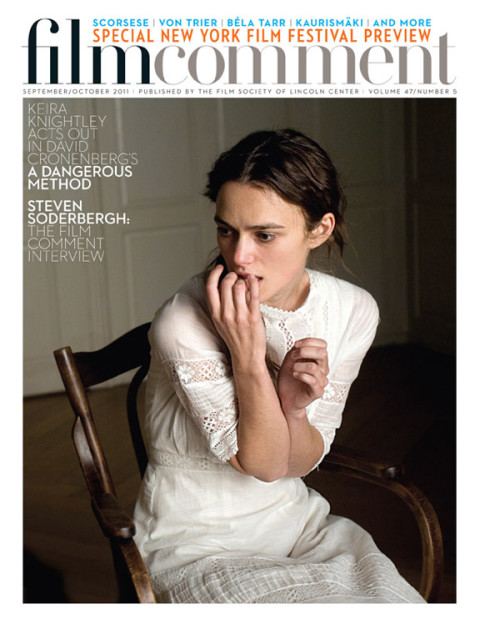
The story of young lovers at once geographically separated and technologically connected, Drake Doremus’s romantic drama arrives decked out in indie-buzz trappings, including a beguiling turn by up-and-coming it-girl Felicity Jones and a couple of Sundance awards in tow (including the 2011 Grand Jury Prize). Regardless of whether these descriptors have you wide-eyed in anticipation or fleeing for the art-house hills, it’s worth stating up front that Like Crazy is nothing if not a movie with its heart in the right place. Doremus’s efforts to capture relationships “as we live them now” are endearing in their earnestness and sporadic acuity, even if they suffer from the conventional-narrative-in-convention-defying-clothes syndrome that too often afflicts movies with the Sundance imprimatur.
The couple meets cute in relatively old-fashioned fashion. British-born and studying in Los Angeles, journalism student Anna (Jones) catches aspiring furniture designer Jacob (Anton Yelchin) sketching throughout her class presentation. She asks him out anyway via a lengthy note slid under the windshield wiper of his car. After a tentative first date bonding over Paul Simon’s Graceland, they begin an idyllic summer romance, exceeding the expiration date of Anna’s student visa. U.S. Immigration denies her reentry when she returns later that year, leaving the couple in a state of romantic and logistical limbo. Months turn into years, and Anna and Jacob attempt to persevere through half-ebullient, half-strained visits across the pond, uncertain forays into “seeing other people,” and periods of separation marked by missed calls and carefully-worded text messages.
A hesitant thumb hovering over the “Send” button after typing out a perhaps too-honest message; ambivalent faces caught in the glow of a cell phone’s screen as they ponder whether or not to answer: Doremus locates the drip-drip-drip of emotional stagnation in the couple’s segue from the physical to the disembodied. Yelchin and Jones are often at their strongest when exploring their characters’ indecisiveness. The vagaries of long-distance communication make Jacob and Anna’s brief reunions—and the actors’ genuinely endearing chemistry—that much sweeter.
Like Crazy has its fair share of such small, evocative moments. What’s missing is the confidence to let these individuated shards of experience form a more organic mosaic of love and loss. Doremus and co-screenwriter Ben York Jones string tonally similar scenes together like beads on a bracelet. The primary emotional hues come through, but where are the gradations of mood, the ebb and flow of everyday coupledom? Factor in the photogenic leads and the somewhat studied “spontaneity” of John Guleserian’s cinematography, and Anna and Jacob’s blissful beach rendezvous and despondent street-fair sojourns begin to feel like the world’s most sincere Abercrombie & Fitch commercials.
This tension between the vibrant specificity of discrete shots and the overly calculated framework in which they’re placed puts the viewer in an awkward position. Can we trust the authenticity of our affections in the moment if the overall trajectory feels built upon screenwriting-manual beats, albeit ones with a quasi-naturalistic sheen? I’ll admit that my heart broke a little by film’s end, as the camera rested on Yelchin and Jones’s faraway looks and Stars’ sublime “Dead Hearts” flooded the soundtrack. Was this feeling actually earned, or did their tense, lost faces and the lush melancholy of the song just sweep me away? When you’re young and dumb and (maybe still) in love, perhaps there isn’t much difference between the two.








